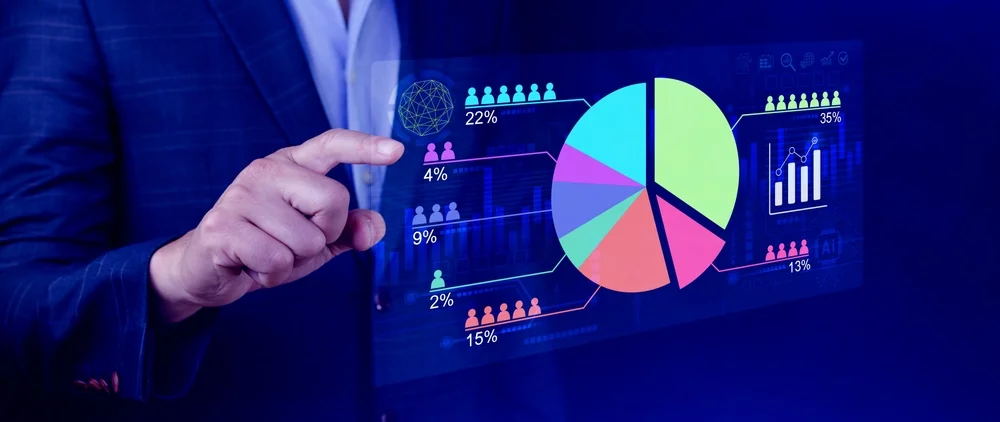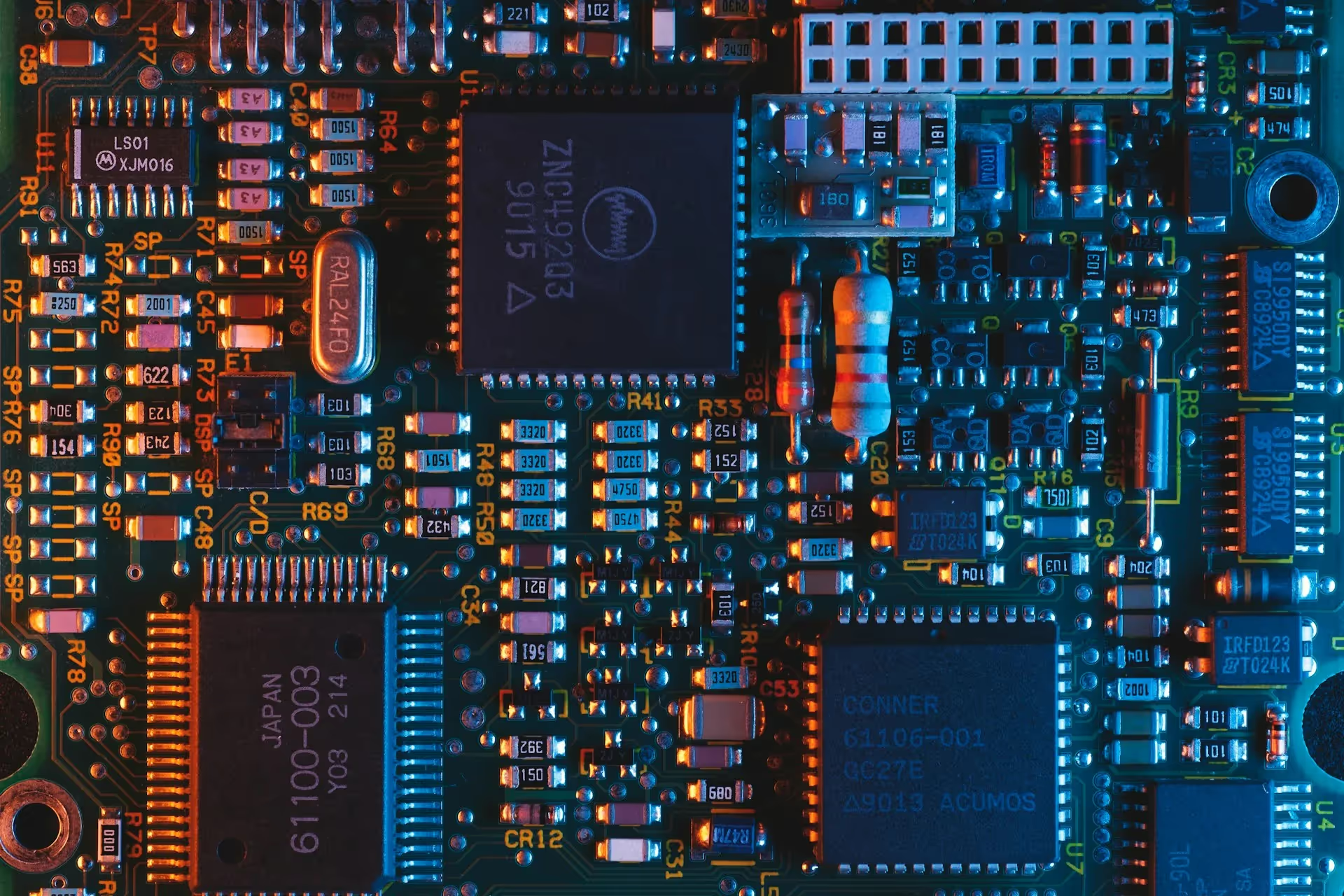
Alienation and Apple
Is digital technology eclipsing the human spirit?
Are you reading this review on a phone or mobile device? Perhaps you are standing in a line or sitting on a bus, only vaguely aware of the other humans sharing your air. In a worst-case scenario, you might be sitting at a table across from a person you love dearly, physically present but mentally lost in a screen. You could choose to look at that person or possibly even converse. Instead, you’re letting me romp around in your head. Why?
Put the phone down, says Christine Rosen, author of The Extinction of Experience: Being Human in a Disembodied World. (But bookmark it for later, says Rachel Lu.) Technology is taking over modern life, and it’s time for flesh-and-blood humans to take it back.
Lost in the Virtual Cosmos
Rosen knows that we are not going to smash our iPhones in a collective repudiation of the virtual world. Nevertheless, she thinks the costs of these technologies are significant and advises readers to “be more Amish” and cultivate “a robust skepticism about each new device and app.” Write letters by hand (ideally in cursive). Daydream in the grocery line. Try a restaurant you haven’t yet investigated on Yelp.
Rosen’s focus is on the everyday, not the freakish extreme. Techno-skeptics often dwell on horror stories: sexual predators, conspiracy theorists, and con artists making off with grandma’s life savings. Rosen is more interested in the costs of “normal” technology use. She fears that a technology-mediated life is simply diminished, less rich and fulfilling than it might otherwise be. Screen-based entertainment has been around for a long time, but today’s virtual world is hyper-absorbing, offering synthetic substitutes for everything from hobbies to friendship to sex. Rosen worries that this is dehumanizing us. In the light of the flickering screen, our capacity for authentic connection starts to slip away, and we lose our taste for the physical world with its sharp edges, bad odors, and stubbornly unyielding laws of physics.
Each of Rosen’s seven chapters examines a different facet of ordinary life that technology has deeply impacted. One chapter considers the importance of face-to-face interaction, a diminishing aspect of human life today. Another chapter considers the value of handwriting as an expression of individuality and a tactile experience. A chapter on boredom explores the costs of packing micro-entertainment into every tiny space of time, instead of using lines and waiting rooms as an opportunity to think, daydream, or interact casually with the people around us. There is a chapter on emotion and how the virtual world distorts and manipulates it. One especially thought-provoking chapter reflects on the importance of place and the value of feeling connected to one in particular.
Rosen has her critics. The most interesting among them question whether she has successfully distilled unique problems with new technologies or whether she is simply speaking from a place of nostalgia, giving the nod to technologies familiar to her generation without ever drawing categorical distinctions between, say, telephones and texts, or a medical chatbot and a physical encyclopedia. (A book, after all, is also a mediated way of accessing reality.) Millennials do strongly prefer texts to phone conversations. But really, what’s so great about interacting with a bizarrely disembodied voice? Rosen enthuses at length about the beauty and expressiveness of the human face, and her thoughts on this subject are compelling. But why, then, does she complain about young people’s fondness for selfie-sharing? Do we want to see human faces or not?
I think this critique gives short shrift to Rosen’s rather plausible argument that technology, even if not new as such, is far more absorbing and lifestyle-invasive today than in previous eras. Perhaps new technologies are not categorically different from older ones, but we may still have crossed an important threshold when everyone started carrying supercomputers in their pockets, and those changes do seem to justify a significant rethink of our technology-related habits. Having said that, it might also be the case that Rosen leaves herself vulnerable to such attacks by failing to grapple adequately with the most significant benefits of technology. She tries to be balanced, but it’s hard for her not to weigh the scales a bit in her own favor, stacking the more trivial benefits of technology (“convenience” and “fun”) against richer human goods such as love, empathy, and creativity. What if technology has made such deep inroads in part because it sometimes delivers rich and satisfying human goods?
Across history, human beings have encountered many such junctures. It’s often unclear whether technological advance makes life richer or more rewarding on balance. But if it opens the way to real and important goods, people will use it. You don’t allow your child to die of a curable disease because you have diffuse concerns about the utilitarian ethos of modern medicine. Social media’s benefits are less dramatic, but they may still be real and important. If so, then it might not be enough to advise people to “be more Amish.” Perhaps the real task at hand is learning to use technology well.
Alienation and Apple
To some extent, alienation is simply part of the human condition, and especially the modern condition. Hunter-gatherers and subsistence farmers knew where their meals came from and who their daddy was. But even if it were feasible to support the earth’s population in that way, hardly anyone would choose grinding poverty over a world with hospitals, libraries, and indoor plumbing. Some amount of alienation is our (modern) cross to bear.
Fortunately, the problem can to a great extent be managed. When technology separates us from “real” goods (family, work, our bodies, the natural world) those connections can often be reestablished in another way. It may take time, because habituation and moral formation are such complex processes that it’s hard to account for all factors. The first users of a new technology tend to have a range of already-formed habits that later users never develop, so there can be a time lag between the introduction of a new technology and a real view of its longer-term impact. One generation uses the search engine to find the book they need, but the next uses it to pinpoint the most relevant three paragraphs, sparing them the trouble of ever reading entire books. Smartphones become popular as a way of arranging coffee dates but soon substitute for the coffee dates.
When new technologies disrupt the pattern of normal life, it’s reasonable to worry that the malign effects could snowball, permanently diminishing human life. But over the middle-to-long term, the situation may not be quite so bad. It’s possible to develop adaptive strategies that help mitigate harms. The telephone invades, destroying the peace and sanctity of the home! Over time, we develop norms about appropriate times to call. Television takes over childhood, and obesity and diabetes rise! We start cultivating a more intentional fitness culture and sign our kids up for more sports.
Not all goods can be fully recaptured. Many years ago, I went on an African safari and was amazed at things our guides were able to spot from a distance with the naked eye. I struggled to find the same things through binoculars, even with someone telling me exactly where to look. My hunter-gatherer ancestors might have been ashamed of me, but my brain has been trained to live comfortably in a world of printed text, not to look for lions. I’ve gotten along well enough without that razor-sharp peripheral vision, but it’s still fascinating to contemplate what it must be like to have such an exquisitely granular awareness of a breathtaking landscape. Something has surely been lost.
That’s life, though! Nobody gets to have it all. The good news is that there are really quite a lot of ways for human beings to find joy and meaning in the world. At its best, Rosen’s book can be read as a thoughtful reflection on how to adapt more successfully to our technology-drenched world. In the wake of the industrial revolution, when people started gravitating en masse from fields to factories, new social problems arose that called for thoughtful consideration, along with new adaptive strategies to mitigate the harms. Perhaps we are at a similar juncture. If that’s the case, though, then it may be necessary to give more sustained attention to the positives of new technology. Why aren’t we willing to put down the iPhones? Are we just incredibly distraction-hungry, or is there more to it than that?
Texting from the Tomato Patch
Inevitably, these questions invite reflections on one’s own life. For me, it’s simply clear that my entire career would be impossible but for the technological advances that Rosen finds so concerning. I am a mother, raising five boys in Minnesota, but also an editor for a publication based in Indianapolis, as well as a masthead contributor for two national magazines both headquartered in East Coast cities. My mother’s generation couldn’t do stuff like that. It’s all but impossible now, unless one is willing to use virtual tools to network and build a platform. When you’re juggling babies and bills in your Upper Midwest kitchen, you quickly land on the question: How can I make new technology work for me? What gadgets or platforms will enable me to do what I’m good at, despite some rather stringent constraints?
My situation is idiosyncratic, but then again, isn’t everyone’s? We all have our own lists of goals and constraints, and precisely because it does so many things well, technology will often be highly instrumental in helping us realize those goals more effectively. I don’t think that always and necessarily makes us more alienated. It's fascinating how technology often enables people (myself among them) to live lives simultaneously very mediated and, in other respects, quite grounded. My own professional life involves very little face-to-face communication and no water cooler conversations. I have many professional friends that I’ve never met in person. But where my father spent considerable time driving to and from an office each day, I consider it normal to click “send” on a work-related document, open my office door, and sit down to dinner with my family fifteen seconds later. My coffee breaks can be spent pruning my tomatoes or reading a book to my kindergartener. How much do we value these water cooler conversations? Am I more alienated than the person working the standard 9-5? It seems unlikely. Offices have their charms, but I’ve read Dilbert and seen The Office, and I would definitely choose time with my kids over the wacky hijinks of a Michael Scott.
As technology continues to insinuate itself into modern life, stories like mine are sure to proliferate, with all manner of tweaks and variations. There are costs, and we sometimes underestimate them, but no one will give up real, important human goods (like a valued career) because a study shows that virtual interaction fosters less empathy. The world has changed, and it’s important to keep looking for ways to reconnect, find meaning, and thrive. Rosen’s book can help with that. But it may need to be supplemented by a more extensive analysis of what technology is doing for us, making it easier to weigh competing goods and strategize.
It seems that you finished the review, despite my warning. Now go tell someone about it and have a lively conversation. Technology doesn’t have to separate us from the things that really matter. Sometimes, it opens new pathways to life, love, and real thriving.
Rachel Lu is an associate editor at Law & Liberty and a contributor at National Review and America magazine.
Pursuit of Happiness

The Rise of Latino America
In The Rise of Latino America, Hernandez & Kotkin argue that Latinos, who are projected to become America’s largest ethnic group, are a dynamic force shaping the nation’s demographic, economic, and cultural future. Far from being a marginalized group defined by oppression, Latinos are integral to America’s story. They drive economic growth, cultural evolution, and workforce vitality. Challenges, however, including poverty, educational disparities, and restrictive policies, threaten their upward mobility. Policymakers who wish to harness Latino potential to ensure national prosperity and resilience should adopt policies that prioritize affordability, safety, and economic opportunity over ideological constraints.

Exodus: Affordability Crisis Sends Americans Packing From Big Cities
The first in a two-part series about the Great Dispersion of Americans across the country.

One Nation Spaced Out
Kevin Sabet’s new book addresses a problem that has bedeviled us for thousands of years: What should individuals and society do about the use of psychoactive substances?

The AI Frontier Must be Fiercely Competitive
In the long run, overregulation could run the risk of making AI less safe.

















